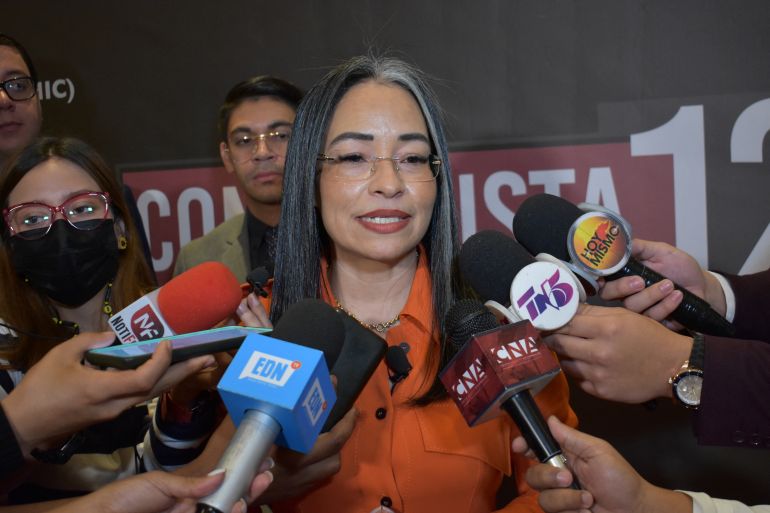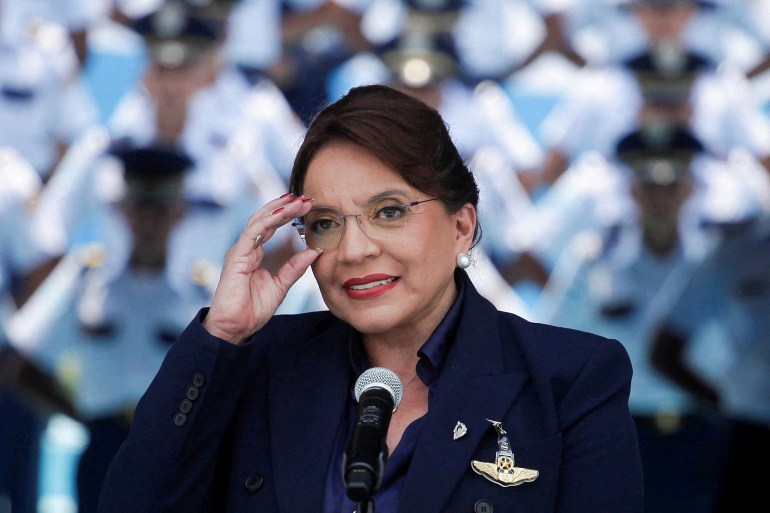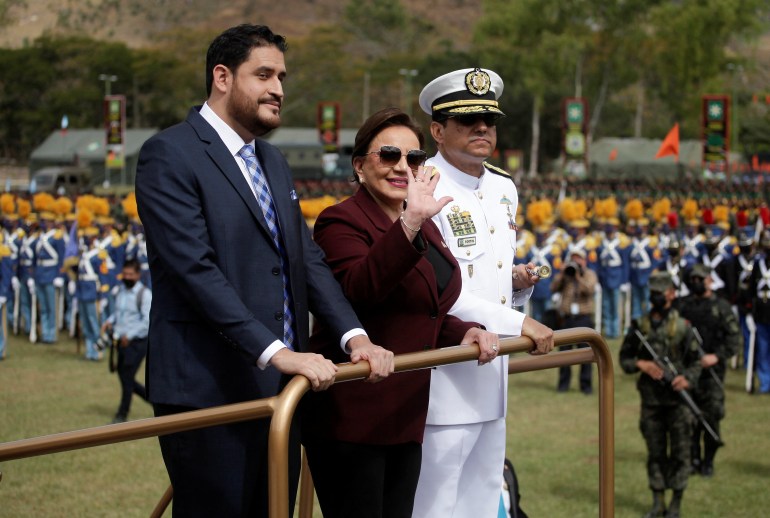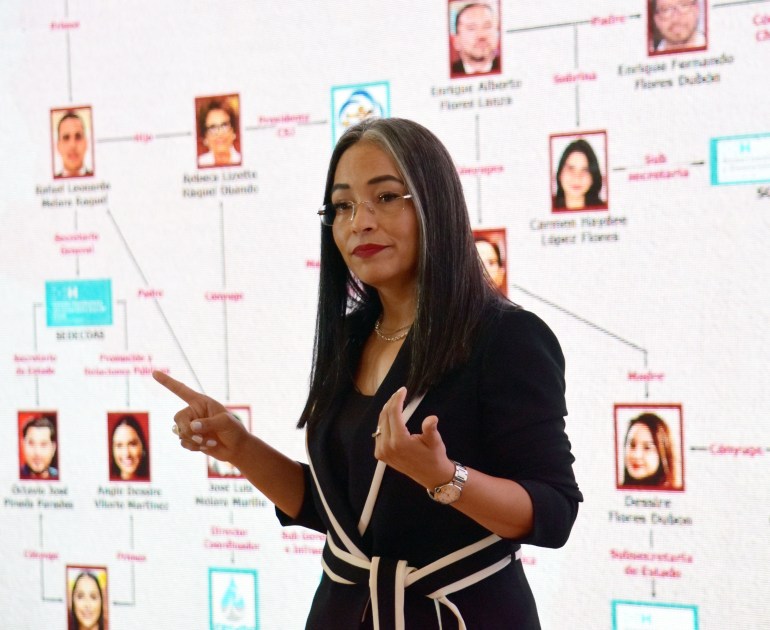Anti-corruption advocate flees Honduras after receiving threats
Gabriela Castellanos’s departure comes after her organisation published a report accusing the government of nepotism.

A prominent anti-corruption activist in Honduras has filed a complaint with the Honduran human rights commissioner, claiming that threats forced her and her family to flee the country at the weekend.
Gabriela Castellanos, director of the National Anti-Corruption Council (CNA) non-profit group, left Honduras at the recommendation of her security team after a “series of indications in recent days” signalled she was in danger, the council said.
Keep reading
list of 3 itemsUN calls for probe into killing of two Honduran environmentalists
Honduras: 7 sentenced for the killing of eco-activist
“We will continue to fight corruption,” Castellanos tweeted early on Monday. “This battle belongs to everyone; they will not stop us.”
She also spoke to Honduran media about the threats, telling HCH Television on Monday that her departure came “even sooner” than she expected. “I think the responsibility of our work is to act in a responsible manner, with truth, no matter the cost,” Castellanos said.
Her accusations arrive in the wake of a CNA investigation, published in May, that took aim at the administration of Honduran President Xiomara Castro.
The report, titled “Concentration of Power”, traces evidence of nepotism in the government.

The wife of former President Manuel Zelaya, the left-wing Castro became Honduras’s first female president after she led a broad coalition to victory in the 2021 presidential elections. Her win ended the 12-year rule of Honduras’s conservative National Party.
But the CNA alleges Castro has since used her position to concentrate power within her family, naming her husband and close relatives to key governmental positions.
“Governmental power has been acquired by a single family, when Mrs Iris Xiomara Castro Sarmiento was elected as president of the Republic of Honduras,” the report said, using the president’s full name.
The report pointed out that Zelaya and the couple’s son, Jose Manuel Zelaya Castro, were appointed as presidential advisers. Another one of their sons, Hector Manuel Zelaya Castro, was named a private presidential secretary.
Other members of Castro’s extended family served in ambassadorships and ministerial posts. A headline in the newspaper El Heraldo compared the minister’s council to a “family tree”.

In her interview on Monday with HCH Television, Castellanos – whose exact location was not immediately clear after she left Honduras – said her organisation continues to move forward with its work, despite the alleged threats.
“From where I am, I will continue working, and as civil society, we must say things whether they like it or not,” she told the news outlet.
Castellanos also said she submitted the threats she received to Honduras’s National Commissioner for Human Rights (CONADEH), an independent body created by congressional decree.
The agency acknowledged its receipt of Castellanos’s complaint. “The complaint was admitted for processing, and procedures that are the responsibility of CONADEH will be carried out to ensure the life and integrity of the petitioner,” it said in a statement on Twitter.

In recent years, a large number of Honduran activists have faced threats and violence, particularly those involved in environmental advocacy.
Last week, water defender Oqueli Dominguez – who protested local iron oxide mines – was killed in a shooting at his home in Tocoa.
Six months earlier, in January, his brother Aly Dominguez and fellow activist Jairo Bonilla were shot to death on the road between La Concepcion and Guapinol. Mary Lawlor, a United Nations special rapporteur on the situation of human rights defenders, has called for an independent investigation into their deaths.
The 2016 murder of Indigenous rights leader Berta Caceres brought global attention to the threats activists receive in the region. She had won the Goldman Environmental Prize – an international honour – just one year prior.